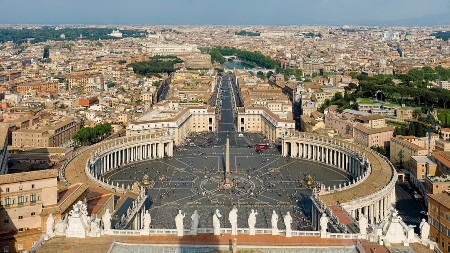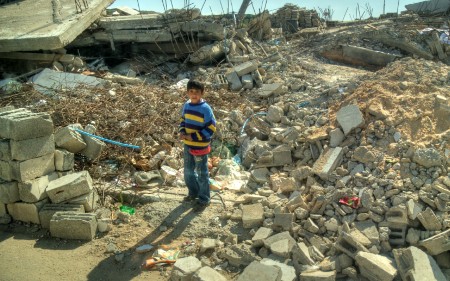We ask you, urgently: don’t scroll past this
Dear readers, Catholic Online was de-platformed by Shopify for our pro-life beliefs. They shut down our Catholic Online, Catholic Online School, Prayer Candles, and Catholic Online Learning Resources—essential faith tools serving over 1.4 million students and millions of families worldwide. Our founders, now in their 70's, just gave their entire life savings to protect this mission. But fewer than 2% of readers donate. If everyone gave just $5, the cost of a coffee, we could rebuild stronger and keep Catholic education free for all. Stand with us in faith. Thank you.Help Now >
SPECIAL: Pope Releases Letter Encouraging the Use of the 'New Technologies'
FREE Catholic Classes
"The proclamation of Christ in the world of new technologies requires a profound knowledge of this world if the technologies are to serve our mission adequately."
Highlights
Catholic Online (https://www.catholic.org)
1/23/2009 (1 decade ago)
Published in Europe
CHESAPEAKE, Va.(Catholic Online) - The Second Vatican Council called for the celebration of "World Communications Day" in its marvelous document "On Marvelous things" (Inter mirifica, 1963) which signaled a strong encouragement for the Church to utilize all of the "new technologies" in her ongoing task of continuing the Redemptive mission of the Lord Jesus Christ, as His Body,until He returns. There is no doubt that the last two pontificates have done just.
The late Servant of God John Paul II and his beloved successor Pope Benedict XVI have called for the quick and enthusiastic adaptation to the use of all of these communicative technologies in the ecclesial mission. We are called to the Evangelization of, and loving service to, the contemporary world. The clear signals from the Chair of Peter that these technologies which have created our current integrated media are a primary resource for our missionary work could not be more clear. The Holy See recently announced it has partnered with Google to use YouTube as a vehicle for communicating the messages of the Holy Father.On this day, the same day that the Holy See released the text of this wonderful letter, they also launched "The Vatican", the YouTube Vatican channel which can be found at https://www.youtube.com/vatican
This important day is celebrated on the Sunday before Pentecost, liturgically and symbolically connecting it to the birthday of the missionary church. The placement sends a strong signal of the connection between the "new technologies" and the primary mission of evangelization. The announcement of the Theme of the Day is made, again to speak liturgically and symbolically, on September 29, is the Feast of the Archangels Michael, Raphael and Gabriel. They are patrons of all who use the media. Finally, the Holy Father releases his pastoral address wherein he sets forth personal direction to the whole Church on the eve of the Memorial of St. Francis de Sales who is the patron of writers (January 24). This also gives time for all of the bishops' conferences and diocesan offices to prepare their materials by which they are to promote this important day.
On the Eve of the Feast of St. Francis de Sales, Pope Benedict XVI released the letter which is set forth below in its entirety.
New Technologies, New Relationships: Promoting a culture of Respect, Dialogue and Friendship.
Dear Brothers and Sisters,
In anticipation of the forthcoming World Communications Day, I would like to address to you some reflections on the theme chosen for this year - New Technologies, New Relationships: Promoting a culture of Respect, Dialogue and Friendship. The new digital technologies are, indeed, bringing about fundamental shifts in patterns of communication and human relationships. These changes are particularly evident among those young people who have grown up with the new technologies and are at home in a digital world that often seems quite foreign to those of us who, as adults, have had to learn to understand and appreciate the opportunities it has to offer for communications. In this year's message, I am conscious of those who constitute the so-called digital generation and I would like to share with them, in particular, some ideas concerning the extraordinary potential of the new technologies, if they are used to promote human understanding and solidarity. These technologies are truly a gift to humanity and we must endeavor to ensure that the benefits they offer are put at the service of all human individuals and communities, especially those who are most disadvantaged and vulnerable.
The accessibility of mobile telephones and computers, combined with the global reach and penetration of the internet, has opened up a range of means of communication that permit the almost instantaneous communication of words and images across enormous distances and to some of the most isolated corners of the world; something that would have been unthinkable for previous generations. Young people, in particular, have grasped the enormous capacity of the new media to foster connectedness, communication and understanding between individuals and communities, and they are turning to them as means of communicating with existing friends, of meeting new friends, of forming communities and networks, of seeking information and news, and of sharing their ideas and opinions. Many benefits flow from this new culture of communication: families are able to maintain contact across great distances; students and researchers have more immediate and easier access to documents, sources and scientific discoveries, hence they can work collaboratively from different locations; moreover, the interactive nature of many of the new media facilitates more dynamic forms of learning and communication, thereby contributing to social progress.
While the speed with which the new technologies have evolved in terms of their efficiency and reliability is rightly a source of wonder, their popularity with users should not surprise us, as they respond to a fundamental desire of people to communicate and to relate to each other. This desire for communication and friendship is rooted in our very nature as human beings and cannot be adequately understood as a response to technical innovations. In the light of the biblical message, it should be seen primarily as a reflection of our participation in the communicative and unifying Love of God, who desires to make of all humanity one family. When we find ourselves drawn towards other people, when we want to know more about them and make ourselves known to them, we are responding to God's call - a call that is imprinted in our nature as beings created in the image and likeness of God, the God of communication and communion.
The desire for connectedness and the instinct for communication that are so obvious in contemporary culture are best understood as modern manifestations of the basic and enduring propensity of humans to reach beyond themselves and to seek communion with others. In reality, when we open ourselves to others, we are fulfilling our deepest need and becoming more fully human. Loving is, in fact, what we are designed for by our Creator. Naturally, I am not talking about fleeting, shallow relationships, I am talking about the real love that is at the very heart of Jesus' moral teaching: "You must love the Lord your God with all your heart, with all your soul, with all your mind, and with all your strength" and "You must love your neighbor as yourself" (cf. Mk 12:30-31). In this light, reflecting on the significance of the new technologies, it is important to focus not just on their undoubted capacity to foster contact between people, but on the quality of the content that is put into circulation using these means. I would encourage all people of good will who are active in the emerging environment of digital communication to commit themselves to promoting a culture of respect, dialogue and friendship.
Those who are active in the production and dissemination of new media content, therefore, should strive to respect the dignity and worth of the human person. If the new technologies are to serve the good of individuals and of society, all users will avoid the sharing of words and images that are degrading of human beings, that promote hatred and intolerance, that debase the goodness and intimacy of human sexuality or that exploit the weak and vulnerable.
The new technologies have also opened the way for dialogue between people from different countries, cultures and religions. The new digital arena, the so-called cyberspace, allows them to encounter and to know each other's traditions and values. Such encounters, if they are to be fruitful, require honest and appropriate forms of expression together with attentive and respectful listening. The dialogue must be rooted in a genuine and mutual searching for truth if it is to realize its potential to promote growth in understanding and tolerance. Life is not just a succession of events or experiences: it is a search for the true, the good and the beautiful. It is to this end that we make our choices; it is for this that we exercise our freedom; it is in this - in truth, in goodness, and in beauty - that we find happiness and joy. We must not allow ourselves to be deceived by those who see us merely as consumers in a market of undifferentiated possibilities, where choice itself becomes the good, novelty usurps beauty, and subjective experience displaces truth.
The concept of friendship has enjoyed a renewed prominence in the vocabulary of the new digital social networks that have emerged in the last few years. The concept is one of the noblest achievements of human culture. It is in and through our friendships that we grow and develop as humans. For this reason, true friendship has always been seen as one of the greatest goods any human person can experience. We should be careful, therefore, never to trivialize the concept or the experience of friendship. It would be sad if our desire to sustain and develop on-line friendships were to be at the cost of our availability to engage with our families, our neighbors and those we meet in the daily reality of our places of work, education and recreation. If the desire for virtual connectedness becomes obsessive, it may in fact function to isolate individuals from real social interaction while also disrupting the patterns of rest, silence and reflection that are necessary for healthy human development.
Friendship is a great human good, but it would be emptied of its ultimate value if it were to be understood as an end in itself. Friends should support and encourage each other in developing their gifts and talents and in putting them at the service of the human community. In this context, it is gratifying to note the emergence of new digital networks that seek to promote human solidarity, peace and justice, human rights and respect for human life and the good of creation. These networks can facilitate forms of co-operation between people from different geographical and cultural contexts that enable them to deepen their common humanity and their sense of shared responsibility for the good of all. We must, therefore, strive to ensure that the digital world, where such networks can be established, is a world that is truly open to all. It would be a tragedy for the future of humanity if the new instruments of communication, which permit the sharing of knowledge and information in a more rapid and effective manner, were not made accessible to those who are already economically and socially marginalized, or if it should contribute only to increasing the gap separating the poor from the new networks that are developing at the service of human socialization and information.
I would like to conclude this message by addressing myself, in particular, to young Catholic believers: to encourage them to bring the witness of their faith to the digital world. Dear Brothers and Sisters, I ask you to introduce into the culture of this new environment of communications and information technology the values on which you have built your lives. In the early life of the Church, the great Apostles and their disciples brought the Good News of Jesus to the Greek and Roman world. Just as, at that time, a fruitful evangelization required that careful attention be given to understanding the culture and customs of those pagan peoples so that the truth of the gospel would touch their hearts and minds, so also today, the proclamation of Christ in the world of new technologies requires a profound knowledge of this world if the technologies are to serve our mission adequately. It falls, in particular, to young people, who have an almost spontaneous affinity for the new means of communication, to take on the responsibility for the evangelization of this "digital continent". Be sure to announce the Gospel to your contemporaries with enthusiasm. You know their fears and their hopes, their aspirations and their disappointments: the greatest gift you can give to them is to share with them the "Good News" of a God who became man, who suffered, died and rose again to save all people. Human hearts are yearning for a world where love endures, where gifts are shared, where unity is built, where freedom finds meaning in truth, and where identity is found in respectful communion. Our faith can respond to these expectations: may you become its heralds! The Pope accompanies you with his prayers and his blessing.
From the Vatican, 24 January 2009
BENEDICTUS PP. XVI
------
---
'Help Give every Student and Teacher FREE resources for a world-class Moral Catholic Education'
Copyright 2021 - Distributed by Catholic Online
Join the Movement
When you sign up below, you don't just join an email list - you're joining an entire movement for Free world class Catholic education.

-

-
Mysteries of the Rosary
-
St. Faustina Kowalska
-
Litany of the Blessed Virgin Mary
-
Saint of the Day for Wednesday, Oct 4th, 2023
-
Popular Saints
-
St. Francis of Assisi
-
Bible
-
Female / Women Saints
-
7 Morning Prayers you need to get your day started with God
-
Litany of the Blessed Virgin Mary
Daily Catholic
 Daily Readings for Thursday, January 16, 2025
Daily Readings for Thursday, January 16, 2025 St. Fursey: Saint of the Day for Thursday, January 16, 2025
St. Fursey: Saint of the Day for Thursday, January 16, 2025 Prayer for a Blessing on the New Year: Prayer of the Day for Tuesday, December 31, 2024
Prayer for a Blessing on the New Year: Prayer of the Day for Tuesday, December 31, 2024- Daily Readings for Wednesday, January 15, 2025
- St. Paul the Hermit: Saint of the Day for Wednesday, January 15, 2025
- St. Theresa of the Child Jesus: Prayer of the Day for Monday, December 30, 2024
![]()
Copyright 2024 Catholic Online. All materials contained on this site, whether written, audible or visual are the exclusive property of Catholic Online and are protected under U.S. and International copyright laws, © Copyright 2024 Catholic Online. Any unauthorized use, without prior written consent of Catholic Online is strictly forbidden and prohibited.
Catholic Online is a Project of Your Catholic Voice Foundation, a Not-for-Profit Corporation. Your Catholic Voice Foundation has been granted a recognition of tax exemption under Section 501(c)(3) of the Internal Revenue Code. Federal Tax Identification Number: 81-0596847. Your gift is tax-deductible as allowed by law.









 Daily Readings for Thursday, January 16, 2025
Daily Readings for Thursday, January 16, 2025 St. Fursey: Saint of the Day for Thursday, January 16, 2025
St. Fursey: Saint of the Day for Thursday, January 16, 2025 Prayer for a Blessing on the New Year: Prayer of the Day for Tuesday, December 31, 2024
Prayer for a Blessing on the New Year: Prayer of the Day for Tuesday, December 31, 2024

